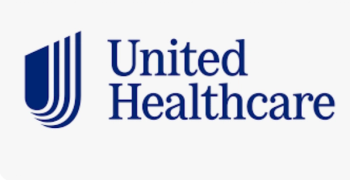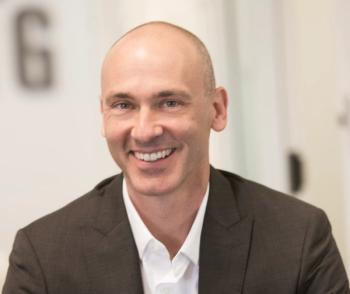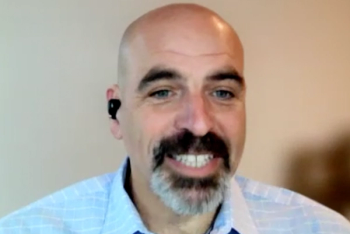
- Managed Healthcare Executive May 2019 Issue
- Volume 29
- Issue 5
Three Emerging Leader Qualities That Guarantee Success
There is no one way a leader may develop, but there are three qualities that effective leaders possess.
At
But to use a common phrase, we need to be skating to where the puck is going. Leaders are required to anticipate and address the challenges and opportunities that we’ll confront tomorrow. Taking this long view, and having this insight, prepares an organization to influence the environment, rather than react to it. It enables you to be there for your customers today and in the future as the marketplace changes.
To best put the future into focus, I recommend a clear lens aimed on three areas: continuous learning, servant leadership, and an outside-in, customer-first view.
1. Continuous learning: Stay curious
Education and continuous learning level the playing field. With the move to more value-based care, the need for evidence-based medicine-as well as the explosive growth of digital engagement-healthcare has never been more complex.
That’s why it’s more important than ever to stay current. The best leaders in our industry benefit from not only relentlessly pursuing knowledge within the health care sector, but also more broadly across other industries. This holistic view of the world helps us understand and plan around potential market influencers and disruptors.
Related article:
For example, in healthcare, we’re witnessing the digital disruption and drive to retail-centricity that many other industries such as media, retail, and consumer finance have already seen. By studying the broader dynamics of other sectors, the disruptors, the market winners and losers, and the forces that influence change, you can navigate and come out on top. Forward-looking leaders remain curious throughout their careers and find opportunities to keep learning; it’s the only way to stay relevant. This means both formal and informal learning. And reading everything you can makes for a better leader and more informed influencer.
2. Servant leadership: The role of empathy
An organization is only as good as its people. Take care of your people and you in turn take care of your customers. I would suggest then modeling the behaviors you want your teams to embrace; most importantly, show caring values in words and actions.
At Cigna, we are laser focused on attracting, developing, and retaining top talent; it is the essential element for future growth. A new generation of talent is entering the workforce: Generation Z. This generation is predicted to change the norms of the workplace by putting culture and experience first in what they’re looking for from their employers. Leaders may need to break out of their comfort zones when it comes to managing Gen Z talent.
Many times, employees are not only looking for performance feedback, but a “life coach” as well. And in the workplace, these employees are looking for leaders who help them succeed by empowering them and removing barriers. This type of empathic servant leadership will be a valuable and effective skill not only with this newly minted cohort of employees, but for the entire workforce. The ability to understand, relate to, and be sensitive to employees’ changing needs will be critical for the long-term success of any company. That means creating an inclusive, flexible, and empathetic workplace for all.
3. An outside-in view: Challenge yourself to think customer first
Customer-centric thinking is critical and needs to be a well-developed skill. Consumer demands and preferences will continue to drive healthcare’s evolution; we know expectations are rising. The best industry leaders will anticipate evolving consumer needs and the growing demand for more virtual solutions.
For example, as one Forbes prediction notes, nearly half of the U.S. workforce could be participating in the gig economy by 2020. They will certainly have different expectations and healthcare demands than workers in traditional roles. Beyond the consumer role, we know that technology advances will also shape the experience. Things like
These are simply examples: we will only be effective leaders if we listen to our customers and design solutions that work for them on their terms, meeting them where they are. The best customer-empowered leaders take the time to talk to customers, listen carefully, take their feedback unvarnished, and orient products and services accordingly.
Related article:
Thousands of years ago, Aristotle said leadership is about ethics and action. This is as true today as it was back then. Being an effective leader is not complicated; for me, it always comes down to acting on the three basic concepts I outlined above-developing yourself, focusing on your talent, and being relentless about tuning into the customer. By focusing on these areas, emerging leaders can acquire the skills and mindset needed to manage today’s opportunities, anticipate future needs, and lead their organizations to success.
Mark Boxer, PhD, is executive vice president and global chief information officer for Cigna, where he is responsible for driving the company’s worldwide technology strategy.
Articles in this issue
over 6 years ago
Six Mid-Year Healthcare Trends to Watchover 6 years ago
5 Metrics that Will Define Healthcareover 6 years ago
Top 10 Up-And-Coming Industry Leaders in Healthcare 2019almost 7 years ago
How High Drug Prices Affect Patientsalmost 7 years ago
6 Ways Health Execs Can Improve Medication Adherencealmost 7 years ago
Featured Exec Andrea Walsh: CEO of HealthPartnersalmost 7 years ago
What You Need to Know About Cholesterol TreatmentsNewsletter
Get the latest industry news, event updates, and more from Managed healthcare Executive.























